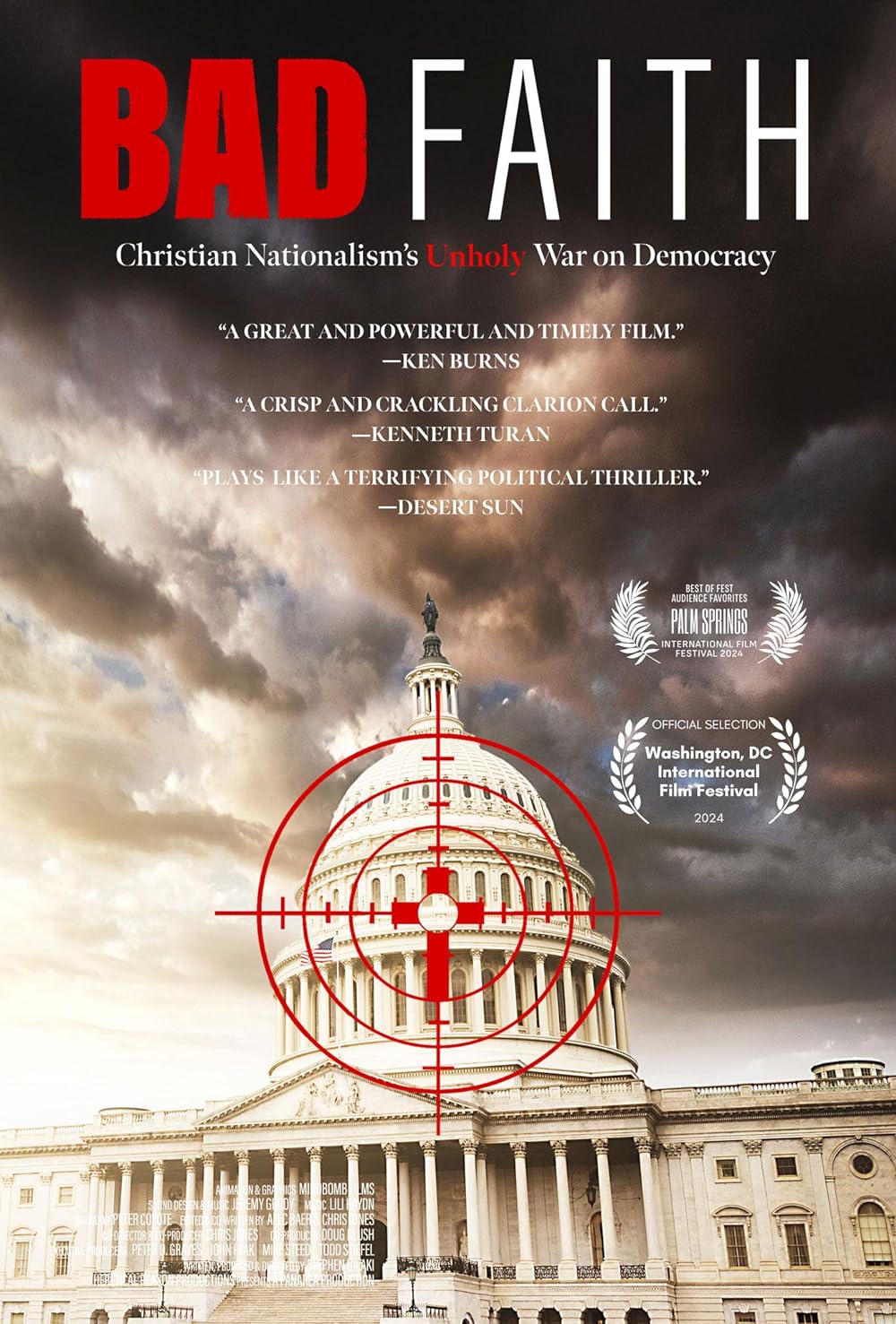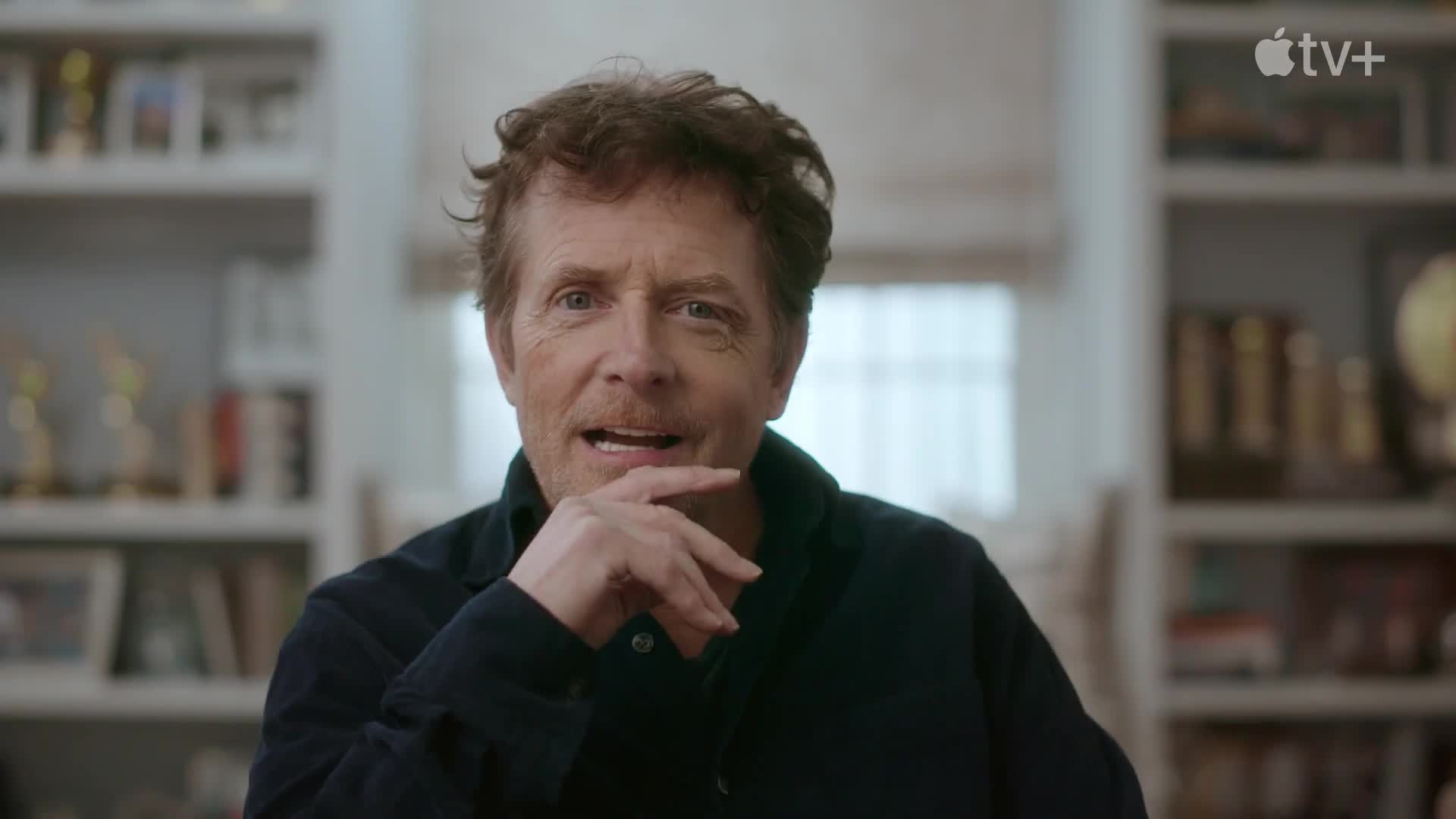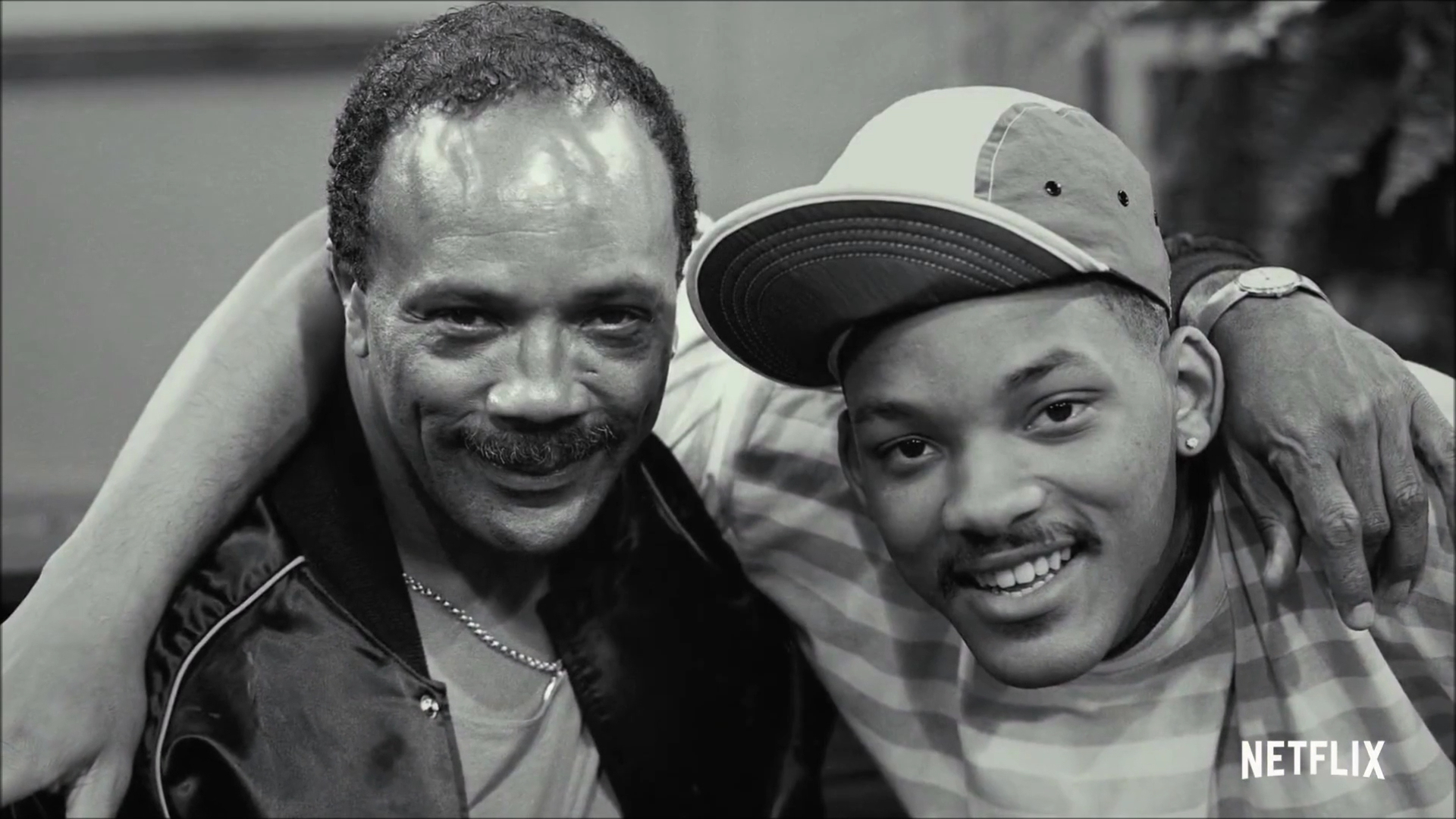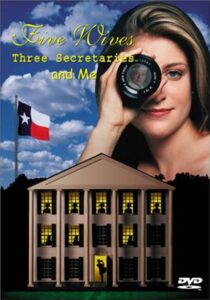Bad Faith: Christian Nationalism’s Unholy War on Democracy
Posted on April 24, 2024 at 5:31 pm
B +| Lowest Recommended Age: | Middle School |
| MPAA Rating: | Not rated |
| Profanity: | Some strong language |
| Alcohol/ Drugs: | None |
| Violence/ Scariness: | News images of violence including January 6, 2021 |
| Diversity Issues: | A theme of the movie |
| Date Released to Theaters: | April 26, 2024 |
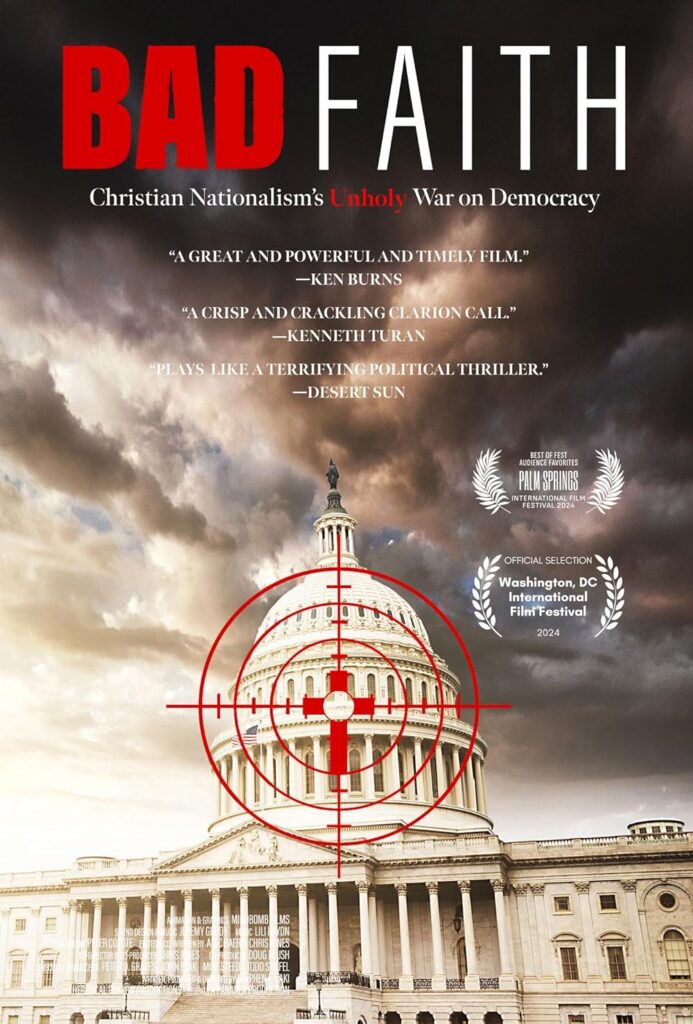
This is a very scary movie, and the scariest part is that the people it is about will never see themselves in it. At less than 90 minutes, it can only touch the surface of some of the issues behind the undermining of democracy by a toxic stew of billionaires seeking less regulation and more tax cuts, white evangelicals who have been persuaded that a holy war will put a stop to whatever previously gave them a sense of cultural primacy, and power brokers who recognize that their views are in the minority and the only way they can get the authority they want is a combination of disinformation and voter suppression. But it does a very good job of documenting history that will surprise even the most sophisticated political observers.
For example, most people tend to think that abortion fueled the uprising of white evangelicals groups that had previously had very little interest in politics and did not tie voting to faith. But directors Stephen Ujlaki and Christopher Jacob Jones make it clear that abortion was not the precipitating factor. It was a few years before, the Supreme Court’s ruling that the Internal Revenue Service (IRS) could deny tax-exempt status to schools with racially discriminatory policies. This struck at the heart of the evangelical groups led by people like Jerry Falwell, but they knew advocating for segregation was not a winning argument. They finally figured out that they could get the rank and file excited by using extremist language about reproductive health.
Later, attacks on various “woke” concepts like same-sex marriage, inclusion, and combatting climate change created opportunities for the wealthy to agitate the white evangelical base on their behalf.
This is a very traditional documentary, archival footage and experts. But the experts are exceptionally well chosen, starting with a blonde woman who begins by telling us that faith is the center of her life. We expect her to be one of the Christian nationalists the movie is about. Instead, she is a former official in the Trump-era Department of Homeland Security who, we see later, was aghast when President Trump refused to make the threat of domestic terrorism a priority. A minister whose faith leads him to support policies that help the poor and marginalized, another who was trained by a Christian nationalist group but left, and journalists and scholars with have deep knowledge in this area make some well-documented assessments. Longtime Republican consultant Steve Schmidt says what these people are working toward is Margaret Atwood’s “Handmaid’s Tale.” We learn about the “multi-facted operation of tremendous sophistication” used to spread mistrust and disinformation, funded by the ultra-wealthy and promoted by FOX and Sinclair Broadcasting, based on data mining of church rosters, not just of the names of members but of their most personal information and shared confidences.
But nothing is as chilling as the footage where we hear evangelical leaders and their political consultant counterparts say what they really think. They insist “America was founded as a Christian nation” (not true), that that concept of separation of church and state is not based in the Constitution but in a “stinkin’ letter” (Representative Lauren Boebert) (also not true), and that we need a “war” to impose a particular white Christian Protestant religion on everyone. And they answer a question many outside the white Christian evangelical world ask, why people of faith are so committed to Donald Trump, who promises to support them but whose life violates some of the values they say are essential; there are many in this group who do not want a man who follows Jesus. They want a chaos agent to undermine the most fundamental foundations of democracy, because democracy means majority rule and they know they cannot win that way.
Parents should know that this film includes discussions of bigotry, Christian nationalism, voter suppression, and abortion, with some footage of the insurrection on January 6, 2021.
Family discussion: What surprised you in this movie? Who did you find most trustworthy and why?
If you like this, try: “Slay the Dragon” (about gerrymandering), “All In: The Fight for Democracy,” “Rigged: The Voter Suppression Playbook,” “Answer the Call,” and other documentaries about attacks on democracy

